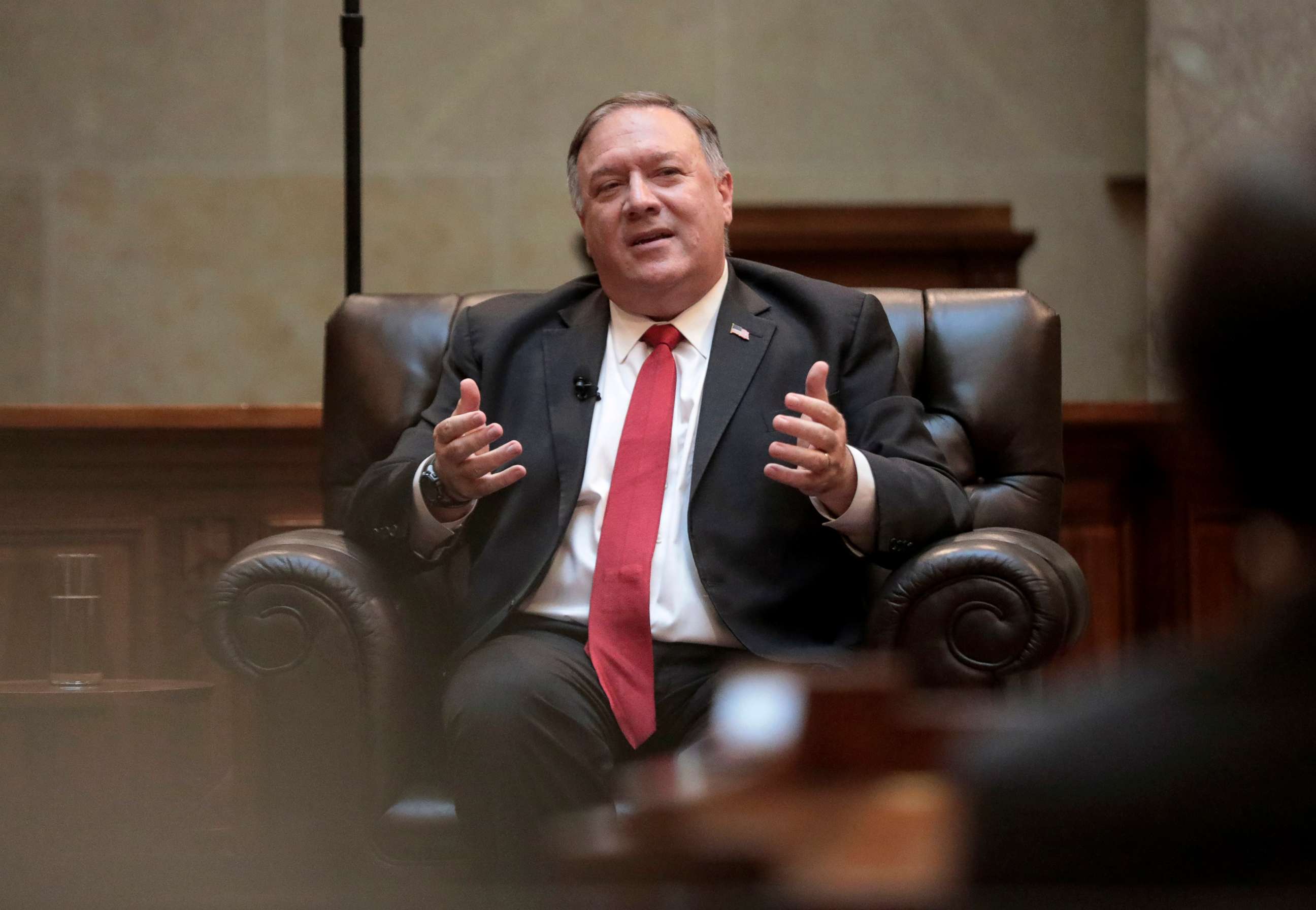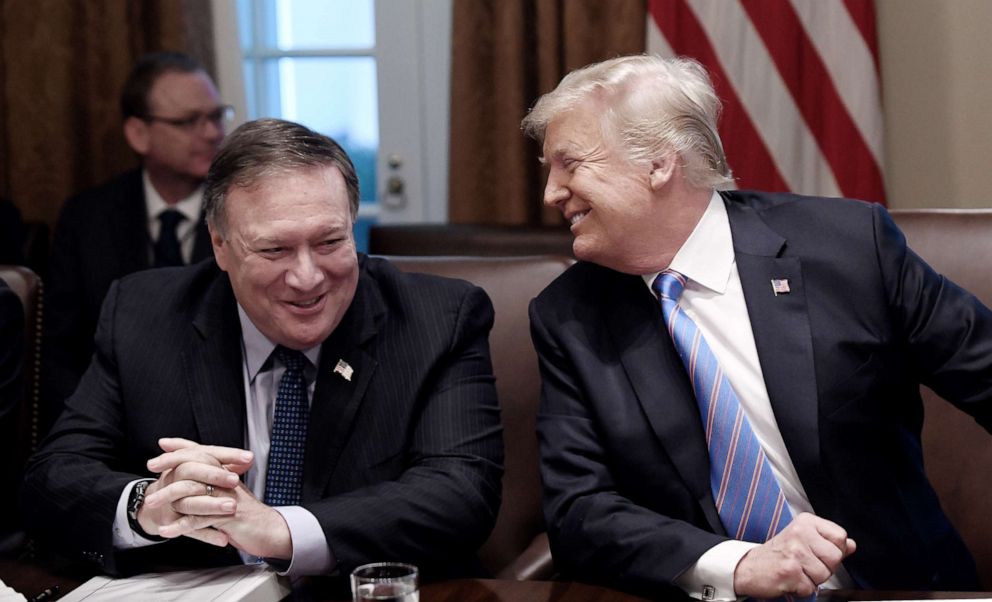Pompeo takes Trump's anti-China message to election swing state Wisconsin
In the final weeks before the election, Pompeo's become increasingly political.
Heralding President Donald Trump's new push to blame China, Secretary of State Mike Pompeo spoke to Wisconsin lawmakers Wednesday, warning that China views state and local officials as the "weak link" in its efforts to influence the U.S.
Critics, including Democratic members of Congress, blasted the stop as Pompeo's latest dive into politics ahead of November's presidential election, accusing the Trump administration of utilizing the levers of power to boost his chances of reelection, including with high-level visits to swing states.
Among the most-partisan top U.S. diplomats, Pompeo has addressed the Republican National Convention, stonewalled House Democrats in their investigations and attacked individual lawmakers by name, and has met with top Republican donors and evangelical leaders.
Pompeo has vocally defended those moves as critical to his efforts to spread the message about what the State Department does and how it serves the American people, chastising those who question his domestic trips.
"Some of the political press in Washington was saying, 'What the heck's secretary going to Wisconsin for?' I know, it's not a country, I get it -- but what goes on here and the work that you all do is so important to the mission that I have," he told the Republican-controlled legislature Wednesday. "I feel like it's my responsibility to get out and talk to you about what we're doing."

The message that he delivered focused on China. He said its leader, Xi Jinping, is feeling the heat from Trump's efforts "pushing back against the Chinese Communist Party here in the United States and its malign influence. ... He thinks local leaders may well be the weak link."
He cited specific examples of Chinese diplomats reaching out to local lawmakers to ask them to pass resolutions praising China's response to COVID-19. Those Chinese officials want to "collectively whitewash (their) culpability for a global pandemic," he said, adding that the virus was "released from Wuhan" -- an evocation of the conspiracy theory he's previously raised that it was manufactured or manipulated in a lab.
His remarks seemed to stir fears of Chinese interference in local communities, from sister cities programs to parent-teacher association meetings, however Pompeo said the administration is not attacking Chinese people, but the country's Communist Party leadership.
Instead, he accused the Chinese government of using racial unrest in the U.S. both to avoid "accountability" and "to foment the kind of strife we've seen in Minneapolis and Portland and Kenosha."
"Each of us as public officials cannot be complacent or complicit in the CCP's (Chinese Communist Party's) campaign to fracture American society and to silence American voices," he said.

In the face of what the U.S. calls an influence operation, he called on state and local officials to invest their public pension funds outside China, increase cooperation with federal agencies on intellectual property protection or counter influence operations, limit or dissolve Confucius Institutes' presence on state college campuses and "engage more broadly around the world" -- seemingly a reference to Taiwan.
It's a message that Trump has adopted in the last few months as his reelection closes in. After initially praising China's response to COVID-19, he has more recently blamed Beijing for how bad the outbreak is in the U.S., including Tuesday at the United Nations General Assembly. After holding off on sanctioning Chinese officials for their human rights abuses against the Muslim Uighurs, he has unleashed financial penalties and blacklisted Chinese firms.
That Pompeo would be the messenger for these election-season pushes is not new, even if it remains unusual.
The top U.S. diplomat was the first to address his or her party in such a political speech at a party convention. Those RNC remarks, while on an official trip to Israel, were cleared by four sets of lawyers, according to an RNC official, but it may have violated the Hatch Act, which forbids government employees from using government resources to promote partisan politics.
Pompeo's RNC speech brought renewed scrutiny to his other activities. The department's acting legal adviser Marik String confirmed to Congress last week that his office has looked into whether Pompeo could attend and speak at one of Trump's reelection rallies, but determined that the secretary could not without violating the Hatch Act.
At another politically charged event, Pompeo told the Prestonwood Baptist Church, an evangelical megachurch in Plano, Texas, that he is "not allowed to do politics," after being asked how attendees could support him and Trump in the 2020 election.
It's a fine line for any senior administration official, between advocating for their boss' priorities and advocating for his or her reelection. But previous secretaries have taken a firmer line against stepping into partisan politics.
"As secretary of state, I am obliged not to participate in any way, shape, fashion or form in parochial, political debates. I have to take no sides in the matter," Colin Powell said in 2004 when he skipped the GOP convention while serving under President George W. Bush.
Powell, a Republican, endorsed former Vice President Joe Biden in this year's election.




